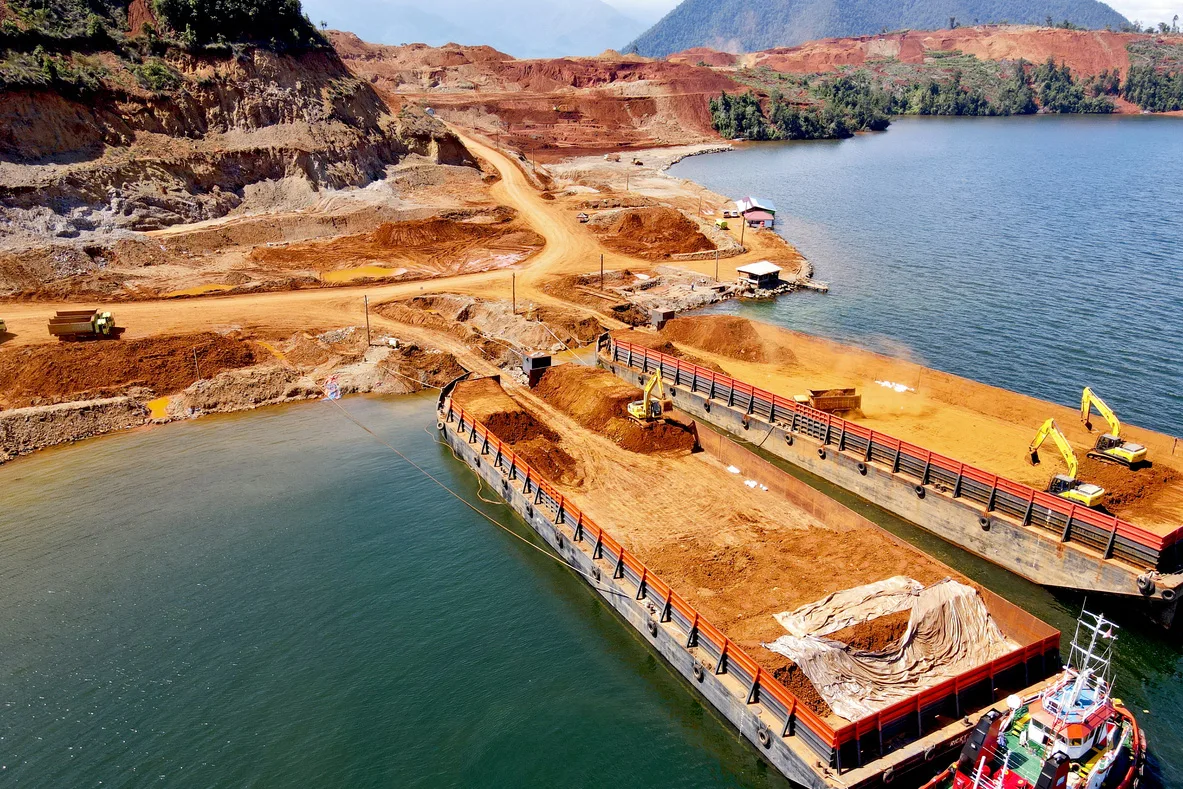As global efforts intensify to reduce carbon emissions, the demand for essential minerals and metals for clean energy technologies is surging, often putting pressure on existing supply chains and negatively impacting local environments. A new study published in Joule features insights from Elsa Olivetti, a materials science and engineering professor and director of the Decarbonizing Energy and Industry mission at MIT. Along with recent graduates Basuhi Ravi PhD ’23 and Karan Bhuwalka PhD ’24, as well as nine collaborators, they investigate the role of nickel, a key component in electric vehicle (EV) batteries, solar panels, and wind turbines.
Given nickel’s importance, how stable is its supply, and what are the environmental, economic, and community-related implications of its extraction? caught up with Olivetti, Ravi, and Bhuwalka to delve into their findings.
Q: Why is nickel becoming increasingly critical in the clean energy sector, and what supply chain issues might arise?
Olivetti: Nickel’s significance is largely attributed to its integral role in EV batteries and clean energy technologies like wind and solar. High-purity nickel sulfate is essential for manufacturing EV battery cathodes, enhancing energy density and extending driving range. As we transition from fossil fuels, the demand for EVs—and subsequently, nickel—has skyrocketed and is set to continue this upward trajectory.
The pathway for obtaining battery-grade nickel sulfate starts with mining nickel from ore deposits, which is then processed and refined. The supply chain faces significant challenges, particularly regarding land use during mining and emissions during processing. A simplified breakdown identifies nickel mining as land-intensive, approaching issues such as deforestation, community displacement, and potential contamination of soil and water from mining byproducts. In processing, the use of fossil fuels results in emissions of particulate matter and sulfur oxides. Certain emerging processing methods can also be highly energy-intensive, potentially doubling the carbon footprint of nickel-rich batteries compared to current averages.
Q: What is Indonesia’s significance in the global nickel supply, and what are the impacts of nickel extraction in that country and others?
Ravi: Indonesia holds a pivotal position in the nickel supply chain, boasting the largest nickel reserves and accounting for nearly half of the world’s nickel extraction in 2023. Remarkably, its production has surged tenfold since 2016. Despite fostering economic growth in specific regions, this uptick in nickel production has also led to substantial environmental and social repercussions.
Nickel mining in Indonesia has been associated with severe health impacts due to air pollution, especially in regions dominated by nickel processing, alongside deforestation in some of the world’s most biodiverse areas. The challenges extend to accelerating community displacement, land grabbing, and issues surrounding water rights and poor job conditions in mining locales, showcasing a disparity in how burdens and benefits are distributed. Similar challenges can be observed in other major nickel-producing nations where mining operations threaten local environments, disrupt livelihoods, and exacerbate inequalities.
On a broader scale, Indonesia’s dependency on coal for nickel processing—particularly in energy-intensive smelting and leaching activities involving laterite—results in elevated carbon emissions compared to other significant production hubs, such as Australia.
Q: How can industry and policymakers address growing nickel demand while enhancing environmental safety?
Bhuwalka: Policymakers in consuming nations can instigate “discerning demand,” incentivizing companies to source nickel responsibly from producers who prioritize sustainability. Regulatory frameworks can set limits on the environmental impact of imported materials, including carbon emissions generated during nickel production. For instance, the EU’s Critical Raw Materials Act and the U.S. Inflation Reduction Act provide frameworks to promote responsible sourcing practices. Governments can leverage their purchasing power to favor sustainably produced nickel, thereby influencing industry norms and encouraging adherence to sustainability standards.
On the supply side, nickel-rich countries like Indonesia can adopt policies aimed at alleviating the adverse effects of nickel extraction. Strengthening environmental regulations and ensuring compliance can mitigate the impacts of mining operations. This could involve stricter pollution controls and responsible waste management practices. Furthermore, fostering community engagement, implementing equitable benefit-sharing frameworks, and investing in innovative and cleaner nickel processing technologies are vital steps forward.
Globally, aligning sustainability standards and facilitating knowledge and technology exchange between developed and developing countries can create a fair competitive environment and minimize unsustainable practices. Moreover, responsible investment from international financial entities—favoring projects that adhere to robust environmental and social governance standards—can help ensure a resilient and sustainable nickel supply chain.
Photo credit & article inspired by: Massachusetts Institute of Technology



